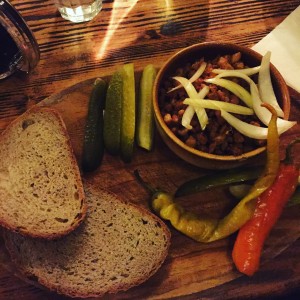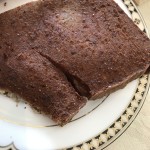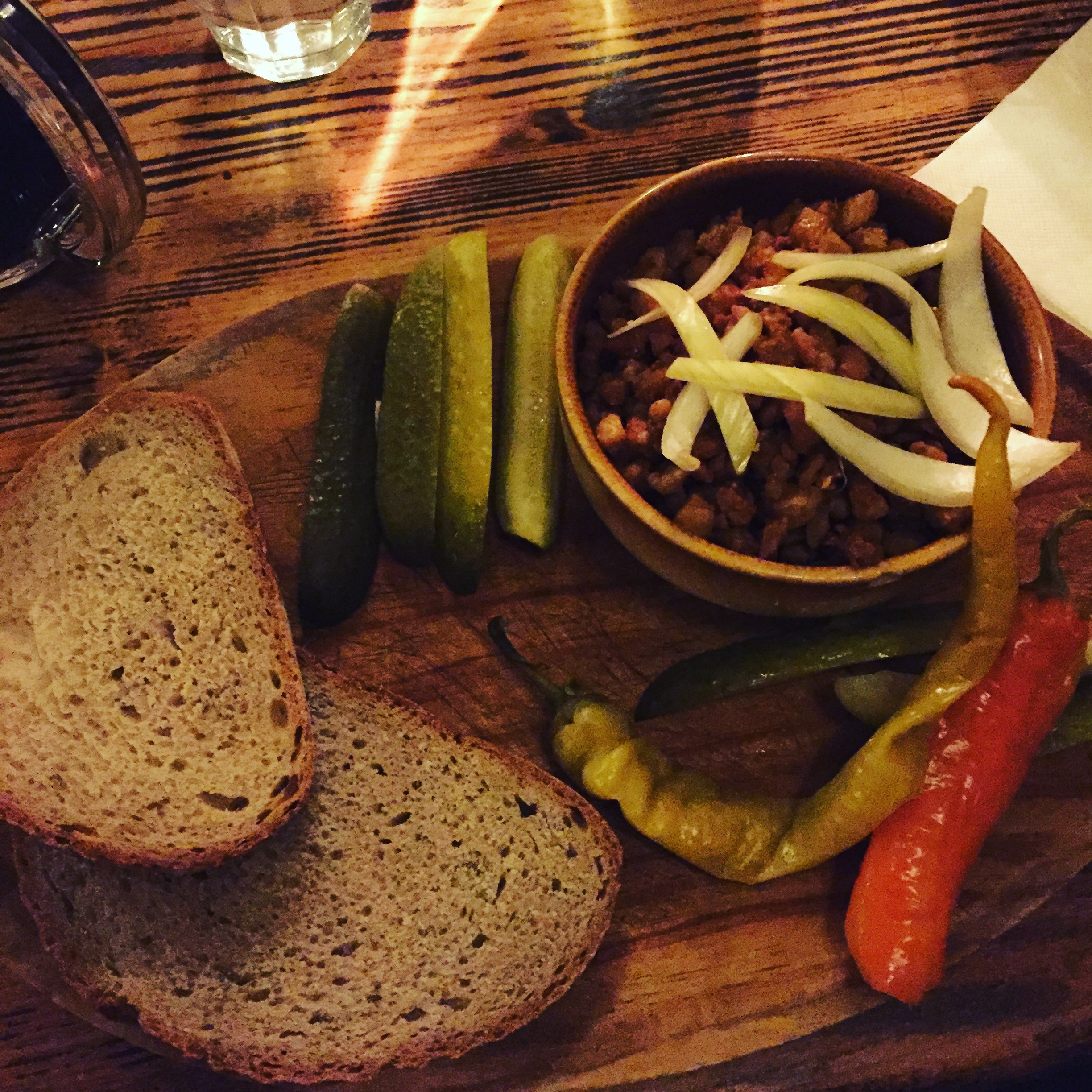Early last year, we visited Cesky Krumlov. While perusing the menu at Krcma v Satlavske Ulici (which I totally recommend), I noticed an item whose translation was scrap bowl. I thought, hells yeah, I’ll eat a bowl of scrap meat any day! So I ordered it.

When the appetizer arrived, it was basically a bowl of loose chunks of scrapple that hadn’t been congealed. (By the way: if you don’t know what scrapple is, then A) I’m sorry to hear that, and B) do yourself a favor and have breakfast in Philly.) Anyway, I thought, “The scrap bowl is like scrapple.”
And then I sat there repeating:
Scrap bowl
Scrapple
Scrap bowl
Scrapple
There was no distinction for me. They sounded exactly the same. Then I got to thinking:
Where speakers of non-Philadelphia dialects would pronounce scrapple as (in layman’s transcription) “scra-puhl,” a Philly speaker would vocalize the /l/ and it would sound like a [w]. (For example, pool sounds like “puw,” and eventually your 4-year-old asks you why there’s an L at the end of the word.)
So scrapple sounds like “scrappuw”.
Meanwhile, there’s scrap bowl: Combining the vocalized [l] of the Philly dialect with the devoiced [b] of bowl (assimilated into the preceding voiceless [p] of scrap, which comes from the same place of articulation), we get “scrappow”.
The only real difference in the pronunciations of scrapple and scrap bowl for me is a gemination where the [p] of scrap meets the devoiced [b] of bowl. Seriously: these two utterances sound the same.

The origin of the word ‘scrapple’ is widely accepted to be a diminutive of ‘scrap’. My question is, could the name have been reanalyzed as a diminutive, when the actual development was:
Semantic intent: Scrap bowl
Utterance: “Scrappow”
Evolution > Scrapple
Re-analysis: Scrap-dimunitive
I’m seriously throwing this out there as the possible origin. And now I’m hungry for scrapple.
